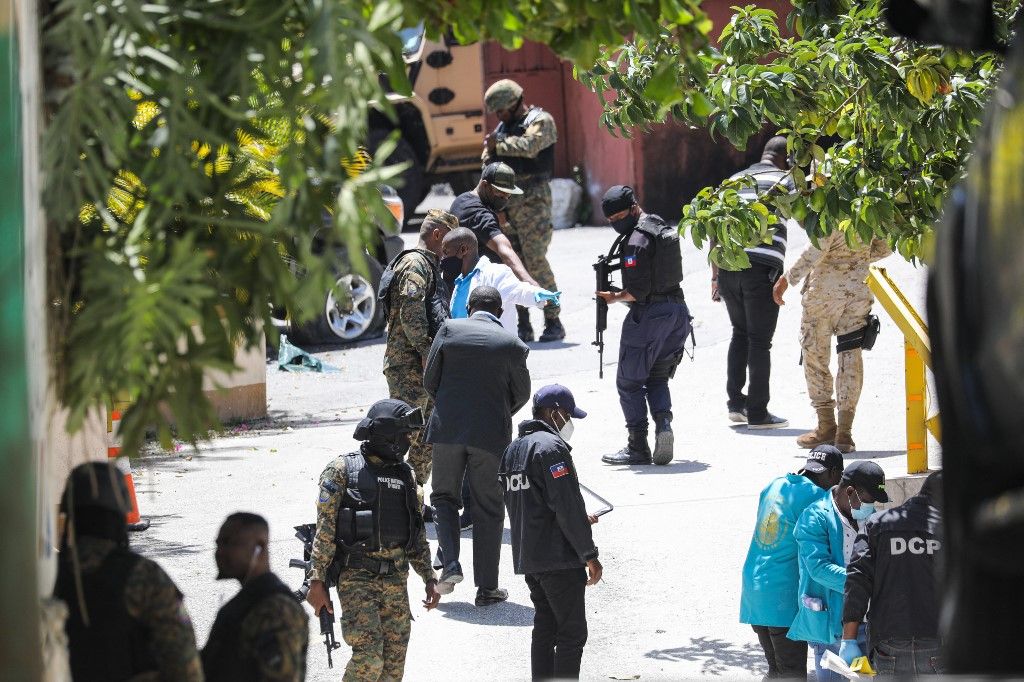The last time a president of Haiti was assassinated, in 1915, the United States seized the Caribbean nation for 19 years. A century and multiple interventions later, some Haiti watchers say it’s time for new ideas.
The Western Hemisphere’s poorest nation was already ravaged by overlapping political, economic and security crises, with swathes of the capital Port-au-Prince under gang control, when President Jovenel Moise was gunned down in a murky raid on his private home early Wednesday morning.
The chaos comes less than four years after the end of a UN mission that aimed at stabilizing Haiti and after billions of dollars were pumped into the country to help it rebuild from a devastating 2010 earthquake.
“There are a lot of things that can be done to help but we need to start from a position of modesty in terms of how quickly it can be done and we need to be very careful to learn from mistakes of the past,” said Brian Concannon, who worked in Haiti and is executive director of Project Blueprint, which promotes human rights in US foreign policy.
ALSO READ | 6, including US citizen, held over Haiti president’s assassination
“The last time there was a call for a military intervention it was there for 13 years, spent seven billion dollars, and when it left Haiti had more guns and less democracy than a few months before the peacekeepers arrived, and in addition you had cholera and sexual exploitation by UN troops.”
The United States, the dominant foreign power in the country 1,300 kilometres (800 miles) from Florida, had accepted Moise’s contention that he was still president despite widespread views that his term had ended.
After the assassination, President Joe Biden’s administration reiterated that Haiti should go ahead with elections in September to bestow legitimacy on a new leader.
Francois Pierre-Louis, who served in the cabinet of Haiti’s first democratically elected president Jean-Bertrand Aristide, who was twice ousted in coups, said that perceived US support for Moise had been a “terrible mistake.”
He said that US interest in Haiti had clearly waned under former president Donald Trump, who notoriously was quoted as referring to the Black-majority country with an epithet when discussing immigration, but that Biden should have more quickly sensed the urgency of the situation.
“I know that Biden has too much on his plate but at the same time there was no break from the Trump administration,” said Pierre-Louis, a professor at the City University of New York Graduate Center.
“If Biden had intervened sooner, Jovenel Moise would not have been shot.”
Pierre-Louis agreed that a military intervention would not be helpful but said there could be an international arms embargo to stop the flow of small weapons to gangs.
ALSO READ | ‘Appointed PM’ vs ‘Dismissed PM’: Haiti in turmoil after President’s murder
International powers should persuade the police to disarm gangs, press for greater accountability on aid money and incorporate the opposition into a solution, he said.
Robert Fatton Jr, an expert on Haiti at the University of Virginia, agreed that a new election would be a “huge mistake” and said a better goal would be pushing for a government that includes the opposition as well as civil society.
“If the international community is to use its power in a wise way, it could compel the government to accept a government of national unity,” Fatton said.
He acknowledged that Haiti had little precedent for such power-sharing compromises but said: “The fact that Jovenel is dead might in a weird way be an opportunity to force the issue.”
US lawmakers led by Representative Gregory Meeks, head of the House Foreign Affairs Committee, earlier this year urged a rethink on Haiti, saying it was best to include broader Haitian voices and not rush to elections.
Monique Clesca, a writer and retired development worker in Haiti, said that Haitians needed to address day-to-day issues such as health care, jobs and education first.
“We are all suffering because the necessary social investments are not being made and we keep on being told the same thing — let’s have elections,” she said.
“The Haitian problem goes deeper and it is really rooted in inequality,” she said. “We need to hit the pause button and reboot.”
The US occupation after 1915 came partly over fears of a German invasion. But with few exports, Haiti has rarely been part of any great power game, raising additional question marks on the official explanation that Moise was assassinated by a foreign mercenary squad.
Fatton, however, said that Haiti could be of vital interest to Biden as a further implosion could set off boat people further inflaming the domestic debate on immigration.
“To put it crudely, I doubt that the US would allow chaos and massive disorder in its backyard,” he said.







